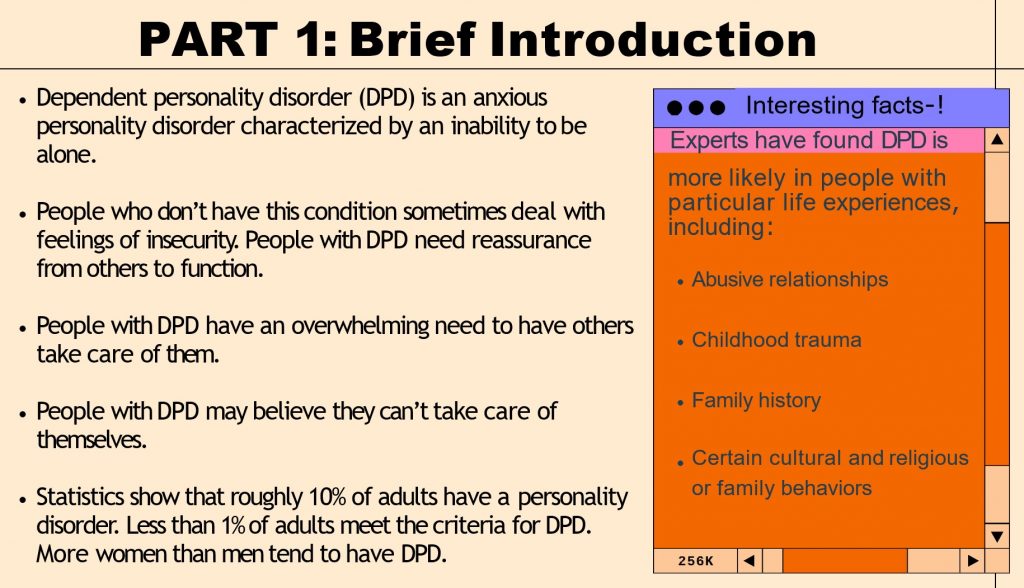Dependent Personality Disorder in Adults
Summary:
Dependent Personality Disorder (DPD) is an anxious personality disorder that affects less than 1% of adults and is more prevalent in women. It is associated with particular life experiences and overprotective parenting, and individuals with DPD have an overwhelming need for reassurance and may struggle with decision-making and expressing disagreement. Treatment involves psychotherapy aimed at promoting independence and self-reliance, and cognitive behavioural therapy may be used to challenge negative thoughts and behaviours. Comorbidities with other mental disorders can result in greater functional impairment.
Excerpt:
Dependent Personality Disorder in Adults
PART 1: Brief Introduction
- Dependent personality disorder (DPD) is an anxious personality disorder characterized by an inability to be alone.
- People who don’t have this condition sometimes deal with feelings of insecurity. People with DPD need reassurance from others to function.
- People with DPD have an overwhelming need to have others take care of them.
- People with DPD may believe they can’t take care of themselves.
- Statistics show that roughly 10% of adults have a personality disorder. Less than 1% of adults meet the criteria for DPD. More women than men tend to have DPD.
Interesting facts!
Experts have found DPD is more likely in people with particular life experiences, including:
- Abusive relationships
- Childhood trauma
- Family history
- Certain cultural and religious, or family behaviours
SYMPTOMS
Someone with a dependent personality disorder may have several symptoms, including:
- Avoidance of personal responsibility.
- Difficulty being alone.
- Fear of abandonment and a sense of helplessness when relationships end.
- Oversensitivity to criticism.
- Pessimism and lack of self-confidence.
- Trouble making everyday decisions.
PART 2: DIAGNOSTIC CRITERIA
- Has difficulty making everyday decisions without an excessive amount of advice and reassurance from others.
- Needs others to assume responsibility for most major areas of his or her life.
- Has difficulty expressing disagreement with others because of fear of losing support or approval. (Note: Do not include realistic fears of retribution.)
- Has difficulty initiating projects or doing things on his or her own (because of a lack of self-confidence in judgment or abilities rather than a lack of motivation or energy).


Reviews